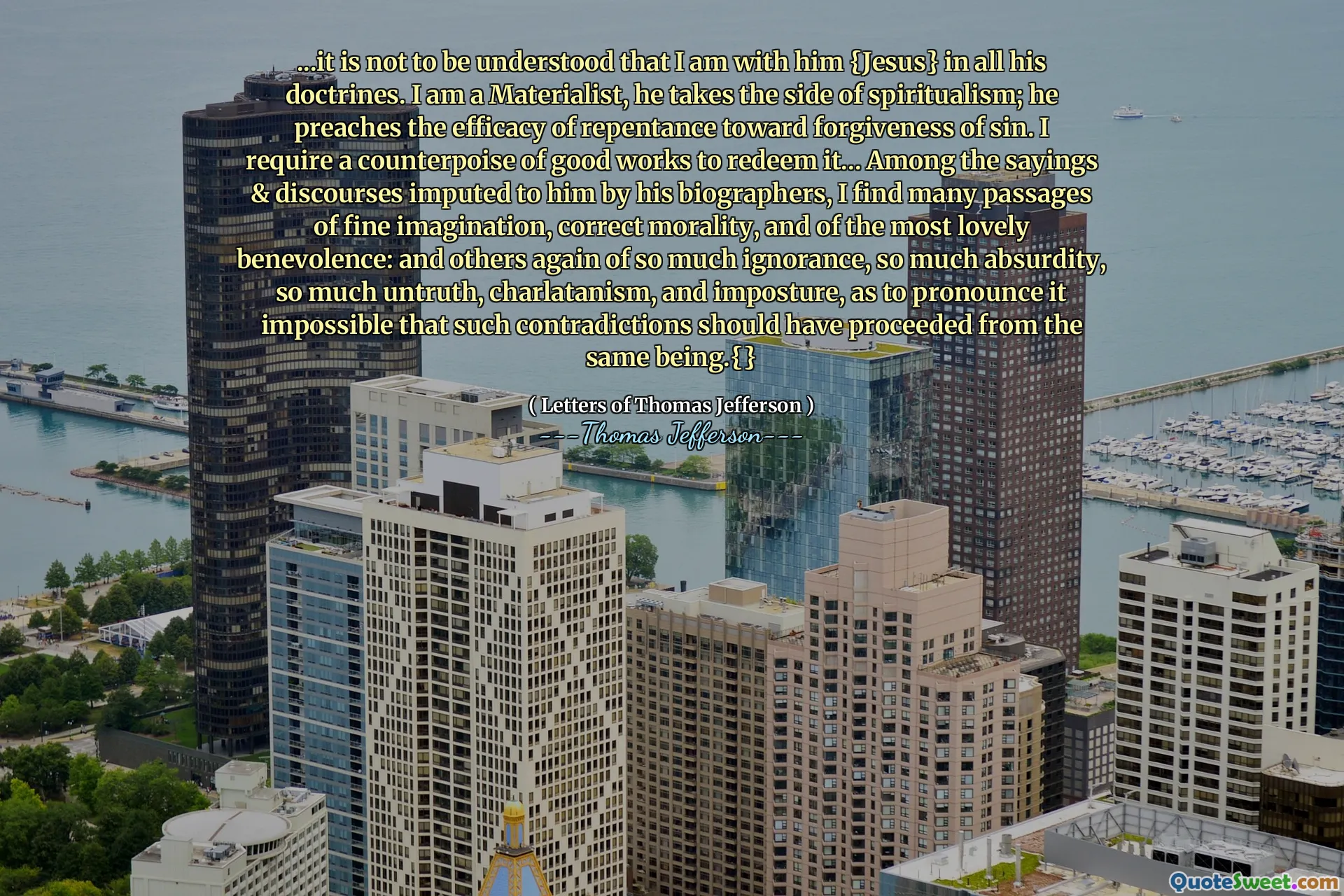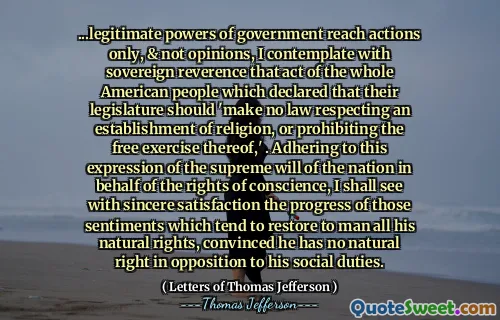
...it is not to be understood that I am with him {Jesus} in all his doctrines. I am a Materialist, he takes the side of spiritualism; he preaches the efficacy of repentance toward forgiveness of sin. I require a counterpoise of good works to redeem it... Among the sayings & discourses imputed to him by his biographers, I find many passages of fine imagination, correct morality, and of the most lovely benevolence: and others again of so much ignorance, so much absurdity, so much untruth, charlatanism, and imposture, as to pronounce it impossible that such contradictions should have proceeded from the same being.{}
Thomas Jefferson expresses his views on Jesus and his teachings, stating that he does not fully align with all of Jesus' doctrines. He identifies himself as a Materialist, contrasting with Jesus' spiritualism, particularly emphasizing the importance of good works as opposed to solely relying on repentance for forgiveness. Jefferson’s perspective highlights a divergence from traditional interpretations of Christian doctrine.
In his reflections, Jefferson acknowledges the beauty and morality found in some of Jesus' words, appreciating their imaginative and benevolent nature. However, he critiques other statements attributed to Jesus, marking them as ignorant or nonsensical. This inconsistency leads him to question how such contradictions could originate from the same person, suggesting a complex view of Jesus' teachings and a need for critical analysis of religious texts.







